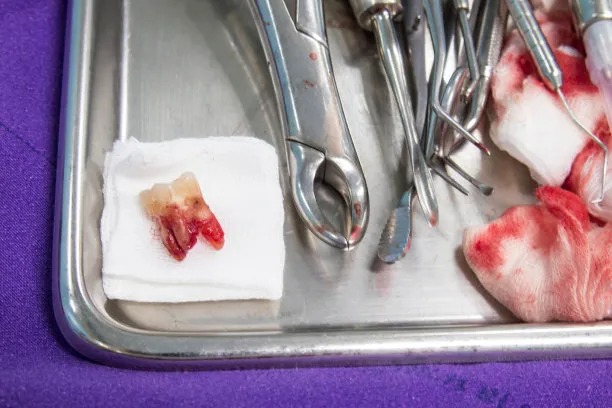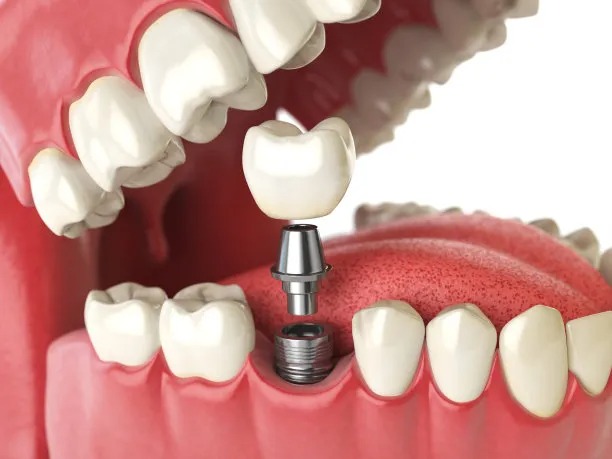Summary: Dental fillings are a critical component of maintaining optimal oral health, providing a solution for cavities and tooth decay. This article explores essential guidelines and precautions to ensure a successful dental filling experience. Emphasizing the importance of choosing a qualified dentist, preparing mentally and physically, participating in post-filling care, and recognizing potential complications, we provide practical advice for patients. By implementing these strategies, individuals can enhance their dental procedures and promote long-term oral health. The following sections will delve deeper into these crucial aspects.
1. Choosing the Right Dentist Is Vital

Your choice of dentist significantly impacts the success of your dental filling experience. Selecting a skilled professional ensures that the procedure is performed correctly and safely. First, consider checking their qualifications and certifications. A dentist with proper training and experience in restorative dentistry will likely provide a higher standard of care.
Additionally, reading reviews and gathering recommendations from friends or family can be invaluable. Positive testimonials can offer insight into the dentist’s practice, patient interactions, and overall satisfaction with the work performed. Personal referrals often lead to trusted choices.
Finally, ensure that the dental office has appropriate technology and hygiene practice. State-of-the-art equipment can enhance the quality of the filling, while strict adherence to sterilization protocols ensures a safe environment for the procedure.
2. Preparing for the Dental Visit
Proper preparation for your dental visit can significantly benefit your filling experience. Start by communicating openly with your dentist about any dental anxiety or concerns. For many patients, fear of the dentist can create stress, which may affect the procedure outcome. Discussing these feelings can help your dentist tailor their approach to make you more comfortable.
Prior to your appointment, gather any medical records or lists of medications you are currently taking. Informing your dentist about your medical history is vital, as certain conditions or medications may influence the choice of filling material or anesthesia used during the procedure.
It’s also beneficial to prepare mentally for the visit. Practicing relaxation techniques, such as deep breathing, can help calm nerves before sitting in the dental chair. Arriving a few minutes early can further help ease anxiety, allowing you to settle in and acclimate to the environment.
3. Post-Filling Care Is Crucial
After your dental filling, following proper post-care instructions is essential for optimal healing. Initially, avoid eating until the numbness from anesthesia wears off to prevent accidentally biting your tongue or cheek. Soft foods are advisable for the first few days, as hard or sticky items can potentially dislodge the filling.
Maintain good oral hygiene practices to ensure the longevity of the filling. Brush your teeth gently around the filled tooth and continue flossing, being careful not to apply too much pressure directly on the filled area. Regular dental check-ups should also be scheduled to monitor the fillings condition over time.
If you experience prolonged discomfort or sensitivity after a filling, it’s crucial to contact your dentist promptly. These symptoms could indicate complications, such as incomplete sealing or issues with the filling material, that require immediate attention to prevent further dental problems.
4. Recognizing Potential Complications
Being aware of potential complications after a dental filling can help ensure you take action when needed. One common issue is post-filling sensitivity, which can occur as the filling settles. This sensation often subsides within a few days, but if it persists, consulting your dentist will be necessary.
In some cases, the filling may become loose or even fall out. Constant pressure from grinding teeth or eating hard foods can contribute to this problem. If a filling feels loose, it’s essential to avoid using that side of the mouth and seek dental advice immediately to prevent further decay.
Additionally, watch for signs of infection, such as swelling or severe pain in the surrounding gum tissue. These symptoms could indicate underlying issues, such as a deeper cavity or gum infection, requiring further treatment to address. Addressing complications as soon as possible will help protect your overall oral health.
Summary:
In conclusion, successfully navigating the dental filling experience involves making informed decisions, adequate preparation, conscientious aftercare, and awareness of potential complications. By focusing on these essential guidelines and precautions, patients can ensure their dental visits are as smooth and successful as possible, ultimately promoting optimal oral health.
This article is compiled by Vickong Dental and the content is for reference only.
Vickong Dental
Vickong Dental is a large medical group established in Hong Kong in 2008 by professors from well-known medical universities in Guangdong and Hong Kong, as well as medical doctors from key national '985' universities (including Master's supervisors and senior professors). The chain of branches brings together expert dentists with PhDs and Master's degrees from Hong Kong and Mainland China, committed to providing high-quality dental treatment.
"Vickong Dental Practices the University Motto of 'Healing and Serving Society,' with a Stable Operation for Sixteen Years. It Has Been honored with Hong Kong Enterprise Leaders's Choice,' and is a Global Trusted Implant Center for the Nobel Implant System. Recommended by Hong Kong Metro Broadcast and Guangdong Television, it Serves Customers from Over Thirty Countries and Regions, Gaining the Trust and Favor of Citizens from the Guangdong-Hong Kong-Macau Greater Bay Area and Surrounding Cities.

Thousands of customers' unanimous praise
The most recognized and highly recommended dental service by customers in the Guangdong-Hong Kong-Macau Greater Bay Area
We Ensure You Receive Detailed Care and Attention Here
Hong Kong standards, Shenzhen prices, Your Trusted English-speaking dentists

Vickong Dental Medical-Grade Instrument Disinfection Process
Vickong Dental Medical-Grade Instrument Disinfection Process

Vickong Dental Chain: A Warm and Comfortable Environment for Treatment






Appointment Hours

Q&A
Why choose Vickong Dental?
Vickong Dental practices the university motto 「Medicine to Benefit Society」, with each branch bringing together highly qualified dentists with doctoral and master’s degrees from Hong Kong and the Mainland, and has maintained seventeen years of steady operation。Recipient of 「2024 Hong Kong Enterprise Leaders Brand」, 「2025 Hong Kong Enterprise Leaders Brand」, a Nobel Biocare Global Trusted Implant Center, and a brand recommended by Metro Radio Hong Kong and Guangdong TV。
To date, we have served customers from more than thirty countries and regions,earning exceptionally high word-of-mouth recognition and trusted recommendations from residents across the Guangdong-Hong Kong-Macao Greater Bay Area and surrounding cities
We have eight major branches in Zhuhai、Shenzhen,and a consultation and service assurance center in Hong Kong,so you can book a free consultation at any time for any questions,which is very reassuring.
If I do not accept the quotation after the CT scan, will I be charged??
No! As long as the actual treatment has not started, you will not be charged any fees.
Will there be any additional charges during the treatment process?
No, there won’t be any additional charges. Before treatment begins, we will clearly explain the treatment plan and its corresponding fees. Only after the patient agrees and signs the consent form will we proceed with the dental service.
Can I pay in Hong Kong dollars?
Yes. Vickong Dental accepts payment in Hong Kong dollars. The amount will be converted based on the exchange rate of the day, and the applicable rate will be clearly communicated to you in advance.
Can I reschedule my appointment at any time?
Yes. Please contact us via **WeChat** or **WhatsApp** as early as possible, providing your original appointment time and details, along with your preferred new date and time slot for rescheduling.













